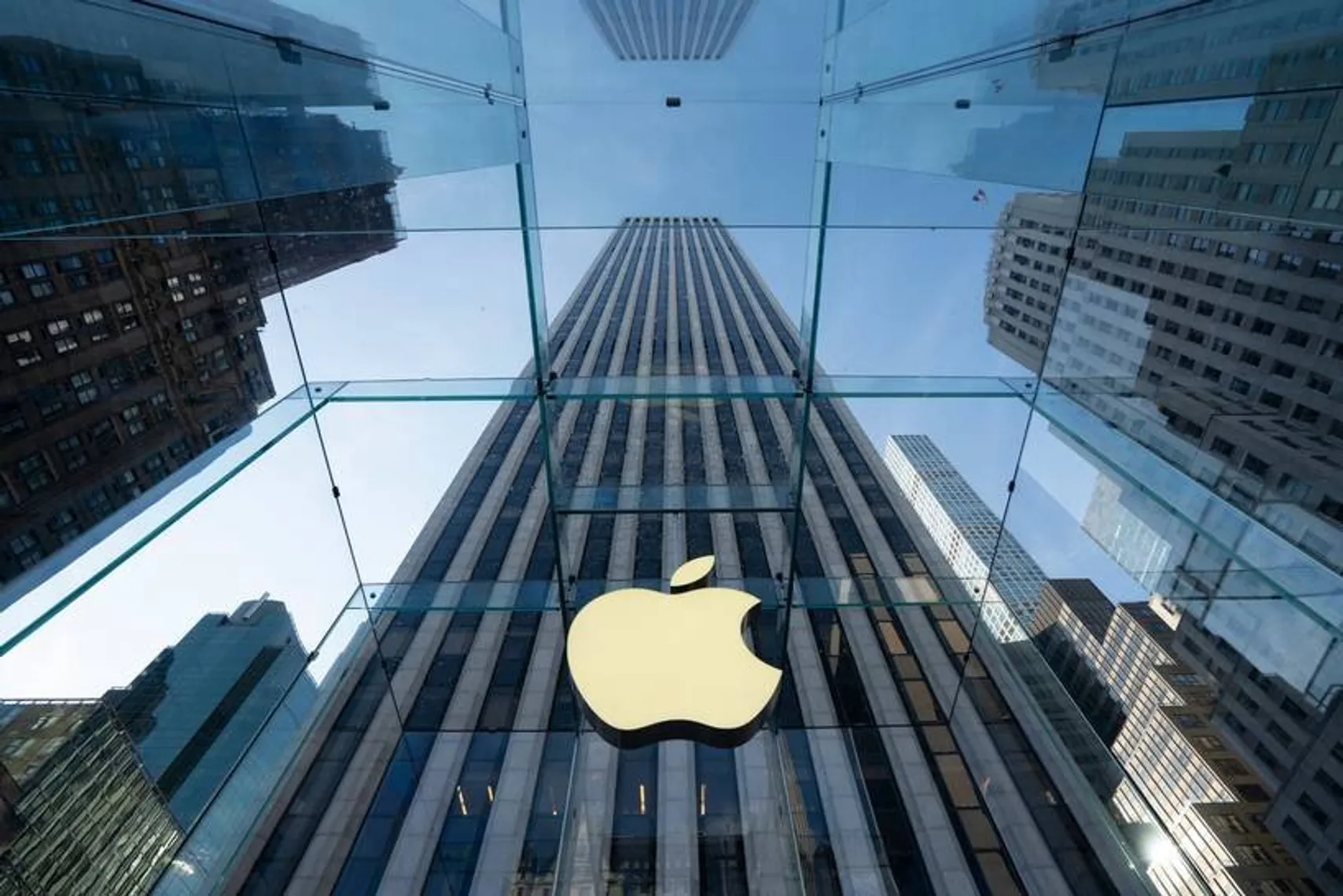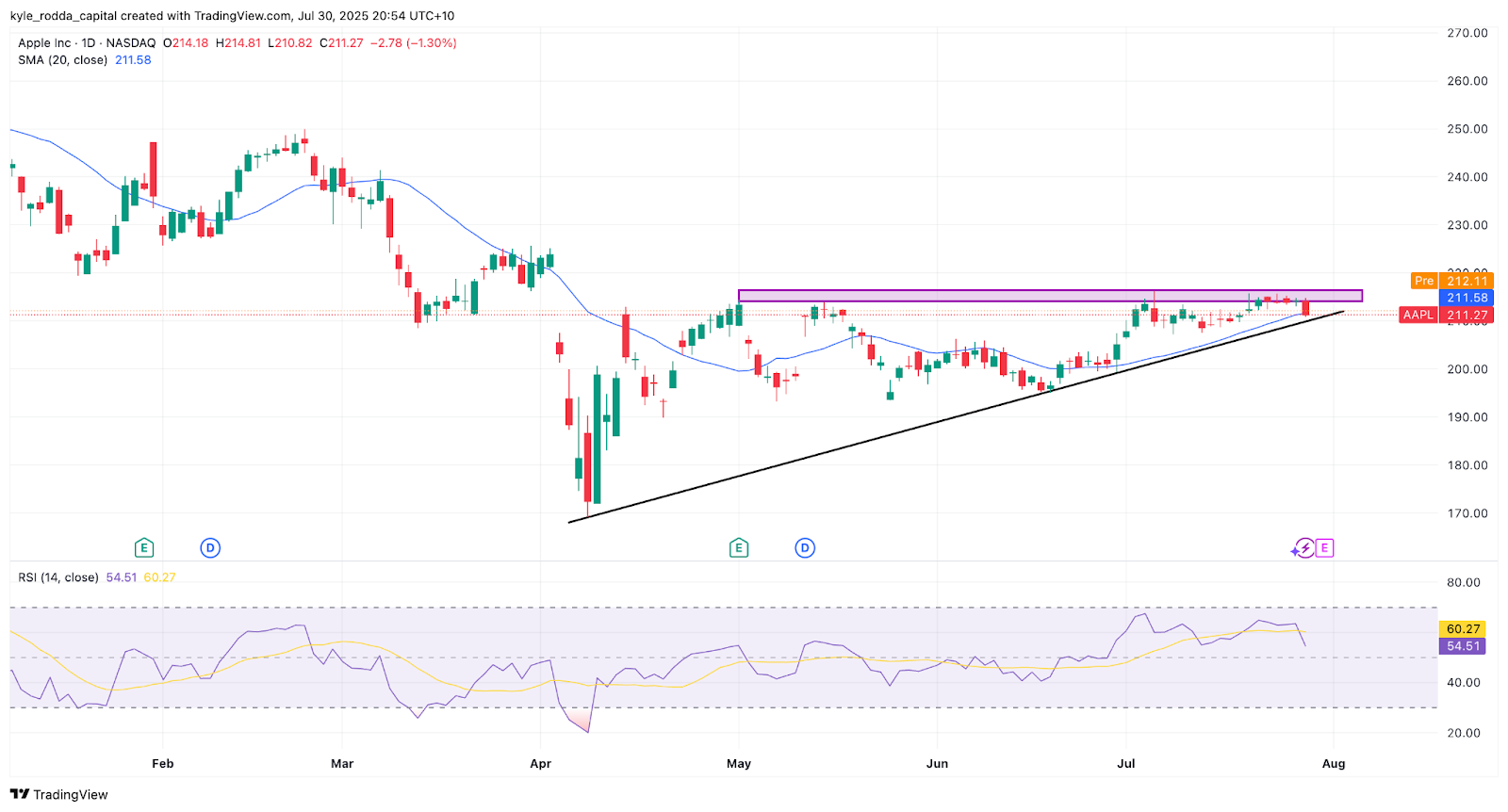Apple Q3 Earnings Preview: Demand Pull-Forward and Tariff Risks in Focus
Investors have their eyes on short-term trade policy impacts and long-term trends in margins and market share
Apple (AAPL) will release its fiscal third-quarter (Q3 FY2025) results after the market close on 31 July, with investors closely monitoring whether the tech giant can maintain resilience amid slowing demand, potential margin compression, and renewed tariff concerns.
Revenue growth expected to be modest despite low bar
Bloomberg consensus estimates point to adjusted EPS of 1$.43 with revenue projected at $89.3 billion — an expected year-over-year rise of 4.1%. Net income is forecast at $21.4 billion.
Although these numbers reflect modest growth, analysts suggest the bar has been set relatively low. Apple has consistently delivered above expectations, beating EPS forecasts in eight of its last eight quarterly reports.
Tariff front running may be pulling sales forward
Apple may receive a temporary boost from consumers bringing forward purchases ahead of potential price hikes later this year. Reports suggest that demand acceleration for iPhones and other devices in recent months may have helped lift Q3 sales. However, this dynamic could also weigh on Q4 performance if consumer spending slows.
Management is expected to provide guidance for the September quarter, which could include early demand signals for the upcoming iPhone 17. iPad unit sales are also expected to remain under pressure, while Services growth — estimated to rise to $26.9 billion in the quarter — will be scrutinised for evidence of sustainability.
Future trade tensions could squeeze margins further
The spectre of renewed US-China trade tensions continues to hang over Apple. Donald Trump’s floated plans for sweeping tariffs, including a potential 30% duty on goods manufactured in China, would hit Apple particularly hard given its dependence on Chinese production. China’s rare earth restrictions also threatened Apple supply chains.
While Apple has shifted some assembly to India and Vietnam in recent years, its supply chain remains highly concentrated in China. Management previously flagged tariff-related costs of approximately $900 million for FY2025, but analysts estimate that figure could reach closer to $2 billion by year-end if levies are implemented on the high side.
China weakness remains a secular trend
Greater China remains a structural concern for Apple, with sales growth slowing even before trade tensions re-escalated. Competition from domestic brands such as Huawei and Oppo continues to eat into Apple’s premium market share. With consumer spending in China still fragile, any sign of a rebound in spending or market share will be welcomed by investors.
Apple shares in short-term uptrend but remain well off highs
Apple shares currently trade at a forward P/E of 28.96x, with 61% of analysts rating the stock a "Buy". The average 12-month price target stands at $226.74, implying a 7.3% upside from the latest close at $211.27.
The stock has traded sideways this year, especially since the rise in trade tensions and uncertainty, reflecting investor caution. Post-earnings, the implied one-day move is estimated at 2.28%, underscoring the potential for volatility if results or guidance disappoint.
From a technical perspective, Apple’s share price has been contained by a resistance zone around $215 per share, with an upward sloping short-term trendline offering support. A break of either of these levels in response to earnings could signal a break-out or deeper pullback.

(Source: Trading View)
(Past performance is not a reliable indicator of future results)